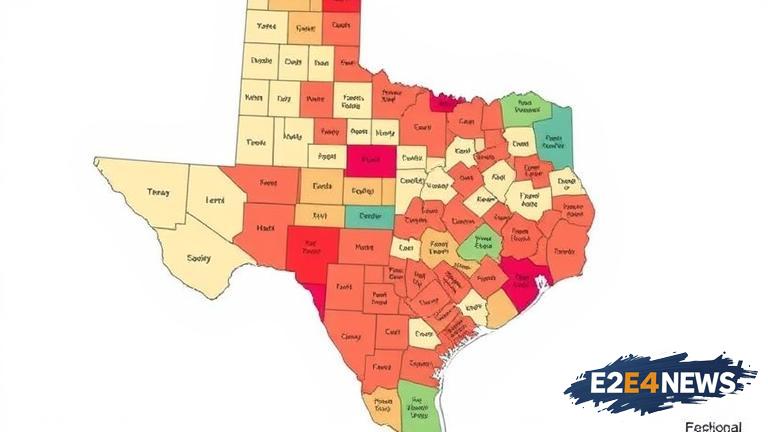A recent redistricting plan in Texas has been met with controversy, as it is expected to give the Republican Party an advantage in the House of Representatives. The plan, which was approved by the Texas Legislature, redraws the state’s congressional districts in a way that is likely to benefit GOP candidates. This move has been seen as a strategic play by the Republican Party to gain more seats in the House, potentially altering the balance of power in Washington. The new district maps are expected to lead to a significant shift in the state’s electoral landscape, with several Democratic-held seats being redrawn to favor Republican candidates. The plan has been criticized by Democrats, who argue that it is an attempt to gerrymander the state’s electoral districts and suppress the votes of minority communities. Despite these criticisms, the plan has been signed into law by Texas Governor Greg Abbott, paving the way for its implementation in the upcoming election cycle. The redistricting plan is expected to have significant implications for the 2022 midterm elections, with several high-profile Democratic incumbents facing tough reelection battles. The plan has also been the subject of several lawsuits, with opponents arguing that it violates the Voting Rights Act and the Constitution. The Texas redistricting plan is just one example of a broader trend of partisan gerrymandering in the United States, with both parties engaging in efforts to redraw electoral districts to their advantage. This practice has been criticized by voting rights advocates, who argue that it undermines the integrity of the electoral process and leads to a lack of competitive elections. The Supreme Court has also weighed in on the issue, ruling in a recent case that federal courts do not have the authority to review partisan gerrymandering claims. Despite this ruling, opponents of the Texas redistricting plan are vowing to continue their fight, arguing that the plan is an egregious example of partisan gerrymandering and that it must be stopped. The plan has also sparked a heated debate about the role of politics in the redistricting process, with some arguing that it is an inevitable consequence of a partisan system. Others argue that the plan is a clear example of the Republican Party’s efforts to manipulate the electoral system to their advantage, and that it must be challenged. The controversy surrounding the Texas redistricting plan is likely to continue in the coming months, with several lawsuits and challenges expected to be filed. The plan’s implementation is also likely to have significant implications for the balance of power in the House of Representatives, potentially altering the trajectory of national politics. The redistricting plan has been widely covered in the media, with many outlets criticizing the plan as an example of partisan gerrymandering. The plan has also been the subject of several editorials and opinion pieces, with many arguing that it is a clear example of the Republican Party’s efforts to undermine the democratic process. The controversy surrounding the plan is likely to continue, with many arguing that it is a critical issue that must be addressed in order to protect the integrity of the electoral process.
